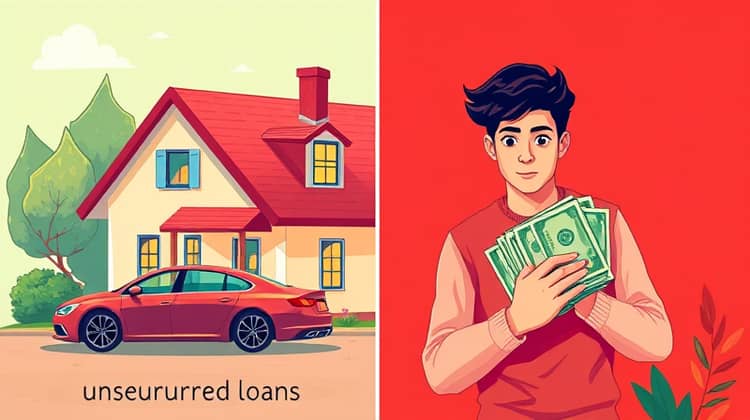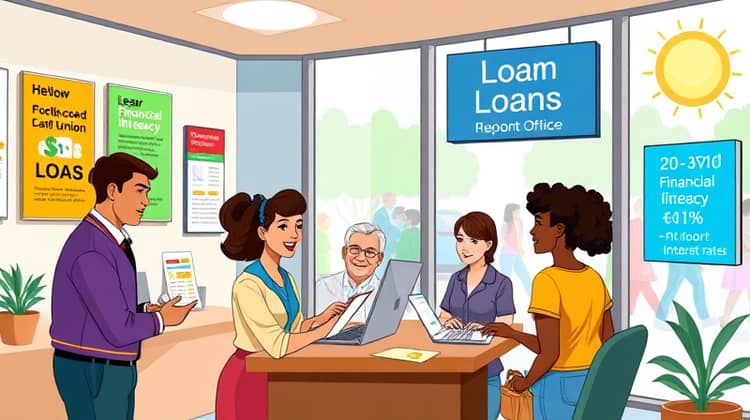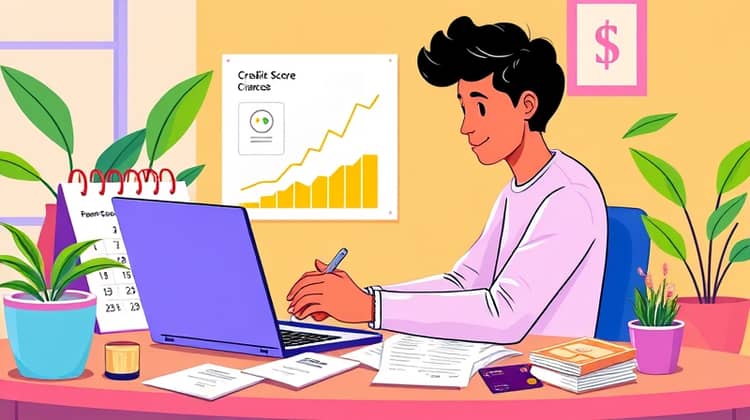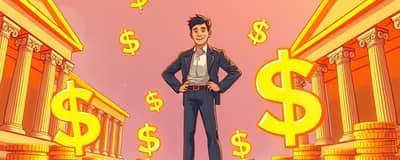When it comes to obtaining a loan with bad credit, individuals often feel overwhelmed by their options. Fortunately, there are various types of loans available that cater specifically to those with less-than-perfect credit histories. Understanding these options can empower you to make informed financial decisions and ultimately improve your credit situation.
This article explores several loan options for people with bad credit, including the advantages and disadvantages of each. We will cover secured and unsecured loans, personal loans, payday loans, title loans, credit union loans, peer-to-peer loans, online lenders, and co-signed loans.
Furthermore, we will discuss which loan options to avoid and provide tips on how to improve your credit score to increase the likelihood of loan approval in the future.
Secured and Unsecured Loans

Secured loans are those that are backed by collateral, such as a home or a car. This means that if the borrower defaults on the loan, the lender can seize the collateral to recoup their losses. Because of this reduced risk, secured loans often come with lower interest rates and can be more accessible for individuals with bad credit.
On the other hand, unsecured loans do not require collateral. They are based entirely on the borrower's creditworthiness and ability to repay. While this offers the convenience of not putting an asset at risk, unsecured loans typically come with higher interest rates, making them more expensive in the long run.
- Lower interest rates on secured loans
- Potential risk of losing collateral
- Higher interest rates on unsecured loans
- No collateral required for unsecured loans
Understanding the differences between secured and unsecured loans is crucial when considering which option to pursue. It is important to evaluate your financial situation and risk tolerance before making a decision.
Personal Loans

Personal loans can be a viable option for individuals with bad credit, as they often have fewer restrictions compared to traditional loans. These loans can typically be used for various purposes, such as consolidating debt, making a big purchase, or covering emergency expenses.
While personal loans do not usually require collateral, lenders may still assess the borrower's credit history and income to determine eligibility. Individuals with bad credit might face higher interest rates, but personal loans still provide options for those in dire need of funds.
- No collateral required
- Flexible usage options
- Higher interest rates may apply
- Quick access to funds
Personal loans can help bridge the financial gap for those with bad credit, but it is vital to ensure that the payment terms are manageable and not overly burdensome in light of the higher interest rates.
Payday Loans

Payday loans are short-term loans typically scheduled for repayment on the borrower’s next payday. They are usually easy to qualify for, even for those with bad credit. However, payday loans often come with exorbitant interest rates and fees, making them a risky financial choice.
Because of their high costs, borrowers who rely on payday loans may find themselves in a cycle of debt, where they need to take out another payday loan to repay the previous one. This can lead to overwhelming financial stress and hardship.
It’s essential to understand the terms fully before opting for a payday loan, as many borrowers disregard the hefty fees associated and the potential impact on their finances. Before considering one, it’s wise to explore other options with more sustainable repayment terms.
Despite their convenience, payday loans should generally be viewed as a last resort, and borrowers should seek alternatives whenever possible.
Title Loans

Title loans are another option for individuals with bad credit. These loans use the borrower's vehicle title as collateral, similar to secured loans. Because the loan is backed by the vehicle, lenders may approve borrowers with poor credit histories more easily.
However, title loans can also carry high interest rates and fees, often leading to a cycle of debt if the borrower is unable to repay the loan. If the borrower defaults, they risk losing their vehicle, making this a high-stakes option that requires careful consideration.
Credit Union Loans

Credit unions are member-owned financial institutions that often offer more favorable loan terms than traditional banks. If you have a membership with a credit union, they may be more willing to work with individuals who have bad credit.
Additionally, credit unions typically have lower interest rates and fees, making them an attractive option for borrowers. However, eligibility requirements may vary, so it's essential to research and understand the terms before applying.
Peer-to-Peer Loans

Peer-to-peer lending is a method where individuals lend money to other individuals through online platforms, bypassing traditional financial institutions. This approach can sometimes yield better interest rates and more flexible terms for borrowers with bad credit.
Because peer-to-peer lending platforms evaluate borrowers based on their assessed risk rather than strictly on credit scores, they can provide alternatives for those who might be turned away by traditional lenders.
- Lower interest rates compared to payday loans
- No collateral required
- Flexible repayment terms
However, it is crucial to read the terms and understand the platform’s fees, as these can vary significantly between different peer-to-peer lending services.
Online Lenders

Online lenders have surged in popularity, offering quick and convenient access to funds for borrowers with bad credit. Many online lenders specialize in bad credit loans, making it easier for individuals to find options suitable for their financial situations.
The application process is often streamlined and accessible via mobile devices, allowing for faster approvals and funding. However, borrowers should still exercise caution to avoid predatory lending practices and ensure they choose reputable online lenders.
Co-Signed Loans

Co-signed loans involve a second party, often a family member or friend, who agrees to take on the responsibility of the loan if the primary borrower defaults. This can improve the chances of loan approval and may even secure better interest rates, as the lender sees the co-signer's creditworthiness as an additional layer of security.
However, it’s essential to understand that co-signers are equally responsible for the debt, and late payments can significantly impact both parties’ credit scores.
- Improved chances of loan approval
- Better interest rates possible
- Risk of damaging the co-signer's credit
As such, potential borrowers should communicate openly with co-signers about their financial situation and ensure that they can manage the loan responsibly.
Loan Options to Avoid

When seeking loans with bad credit, it's just as important to know which loan options to avoid as it is to understand the available ones. Some loans can trap borrowers in a cycle of debt and make financial situations worse.
- Payday loans due to high-interest rates
- Title loans which risk asset loss
- Auto title loans that can lead to vehicle repossession
- Unlicensed lenders that operate outside of regulations
Being informed about the pitfalls of specific loans can save borrowers from potential financial ruin.
Improving Your Credit Score

Improving your credit score takes time and effort but can significantly impact your ability to get loans and the interest rates you receive. One key step is ensuring that you pay all bills on time, as payment history is a major factor in credit scoring models.
Another important aspect is reducing your credit utilization ratio. By keeping credit card balances low relative to your credit limits, you can improve your score over time. Additionally, check your credit reports regularly for errors and dispute any inaccuracies to ensure your credit report accurately reflects your financial behavior.
Finally, consider establishing a good credit mix, which means having a combination of credit types, such as installment loans and revolving credit. This can positively impact your credit score and improve your creditworthiness.














